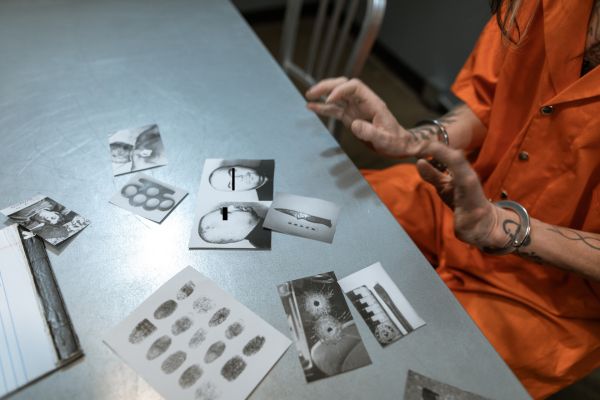Pursuing an Online Criminal Justice Degree in Pennsylvania
Earning an online criminal justice degree in Pennsylvania provides a flexible and accessible pathway to entering or advancing in the fields of law enforcement, legal studies, corrections, and beyond. This comprehensive guide explores the benefits of pursuing a criminal justice degree online, the various program options available, the steps to succeed in an online learning environment, and the career opportunities that await graduates.
Benefits of an Online Criminal Justice Degree
Flexibility and Convenience
One of the primary advantages of pursuing a criminal justice degree online is the flexibility it offers. Online programs allow students to study from anywhere with an internet connection, whether from their home in Pennsylvania or while traveling. This flexibility is especially beneficial for working professionals who wish to further their education without interrupting their careers or for individuals managing family responsibilities.
Accessibility
Online criminal justice programs eliminate geographical barriers, making education accessible to students across Pennsylvania and beyond. Whether in rural areas without nearby universities or urban centers with busy lifestyles, online learning provides equal access to high-quality education. Students can participate in classes, access course materials, and engage with peers and instructors virtually, fostering a diverse and inclusive learning environment.
Cost-Effectiveness
Choosing an online criminal justice degree can be more cost-effective compared to traditional on-campus programs. Students save on commuting expenses, housing costs, and campus fees. Additionally, many online programs offer competitive tuition rates and financial aid options, including scholarships and grants, to support students in achieving their academic goals without accruing substantial debt.
Types of Online Criminal Justice Programs
Bachelor’s Degree (B.S./B.A.) in Criminal Justice
A bachelor’s degree in criminal justice provides a foundational understanding of the legal system, criminology, law enforcement, corrections, and juvenile justice. Students gain critical thinking, analytical, and communication skills necessary for careers in policing, probation and parole, private security, and victim advocacy.
Master’s Degree (M.S./M.A.) in Criminal Justice
A master’s degree in criminal justice offers advanced coursework in areas such as criminal law, criminal behavior, forensic psychology, and criminal justice administration. Graduates are prepared for leadership roles in law enforcement agencies, federal and state government agencies, non-profit organizations, and academia. Some programs offer specializations in areas like cybersecurity, homeland security, forensic psychology, or legal studies to tailor education to specific career goals.
Doctorate in Criminal Justice (Ph.D./D.C.J.)
For those seeking advanced research, teaching, or leadership roles, a doctorate in criminal justice provides rigorous training in criminological theory, research methods, policy analysis, and criminal justice administration. Doctoral graduates contribute to policy development, conduct groundbreaking research, and educate future criminal justice professionals.
Steps to Pursue an Online Criminal Justice Degree
1. Research Programs
Begin by researching accredited online criminal justice programs that align with your career aspirations and educational goals. Consider factors such as program curriculum, faculty expertise, accreditation status (such as from the Academy of Criminal Justice Sciences), and student support services offered.
2. Admission Requirements
Review the admission requirements for your chosen program, which typically include a high school diploma or equivalent for bachelor’s programs and a bachelor’s degree in criminal justice or related field for master’s and doctoral programs. Prepare necessary application materials, including transcripts, letters of recommendation, a personal statement, and any required standardized test scores.
3. Engage in Online Learning
Upon acceptance into the program, actively participate in online classes, discussions, and collaborative projects. Utilize digital tools and resources provided by the program, such as virtual libraries, online tutoring services, and multimedia lectures, to enhance learning and deepen understanding of criminal justice concepts and practices.
4. Fieldwork and Internships
Many online criminal justice programs incorporate fieldwork or internships to provide hands-on experience in real-world settings. Collaborate with program faculty and advisors to secure a placement with local law enforcement agencies, courts, correctional facilities, or community organizations. Field experiences allow students to apply theoretical knowledge, develop practical skills, and network with professionals in the field.
5. Professional Preparation and Licensure
Prepare for professional pathways in criminal justice by researching licensure requirements for specific career paths, such as law enforcement officers, probation officers, or forensic analysts. Some positions may require passing licensure exams administered by organizations like the Association of Social Work Boards (ASWB) or the American Board of Criminalistics (ABC). Engage with career services offered by the program to explore job opportunities, connect with alumni, and prepare for interviews and career advancement.
Conclusion
Earning an online criminal justice degree in Pennsylvania offers numerous benefits, including flexibility, accessibility, and cost-effectiveness, while preparing students for rewarding careers in law enforcement, legal advocacy, corrections, and beyond. By selecting an accredited program, actively engaging in coursework and field experiences, and leveraging available resources, students can build a solid foundation for professional success and make a positive impact in their communities. Embrace the opportunities afforded by online education and embark on a fulfilling journey toward a meaningful career in criminal justice.

